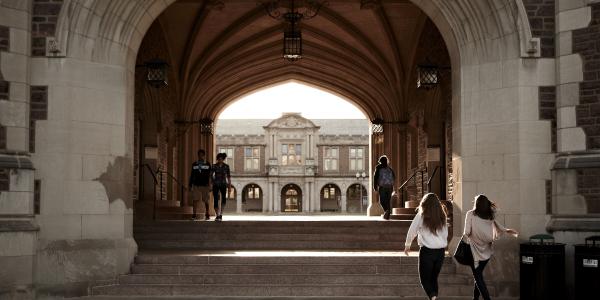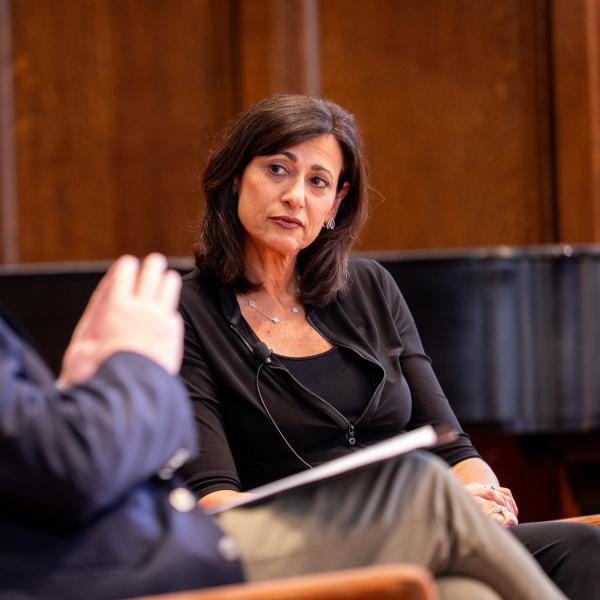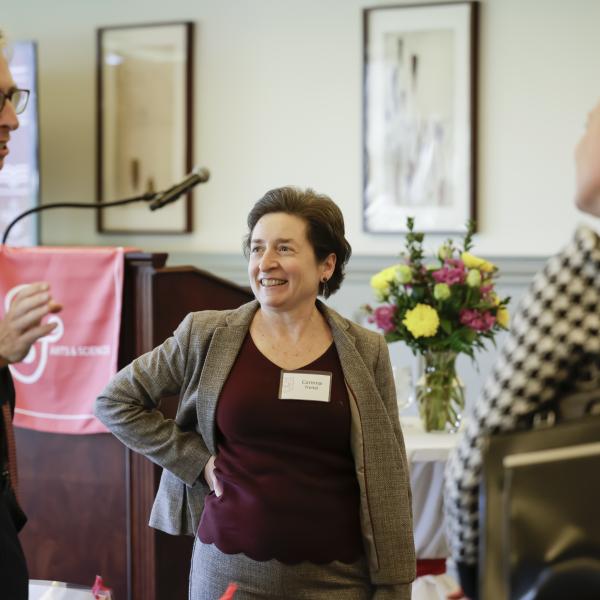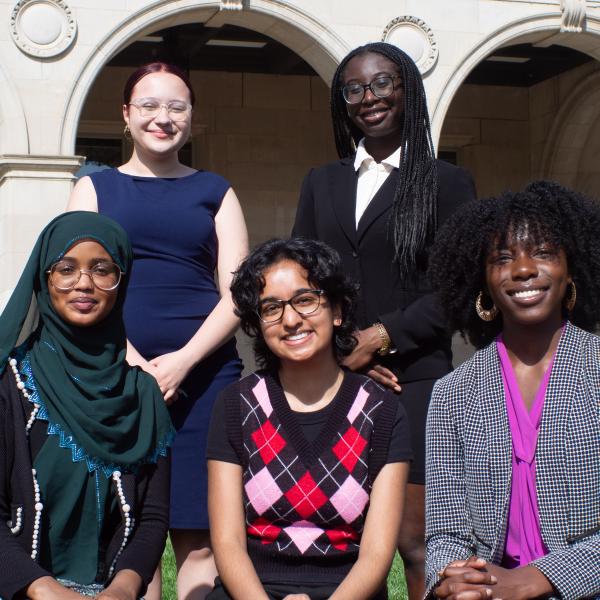Four students share their sometimes simple and sometimes meandering journeys to find their majors.
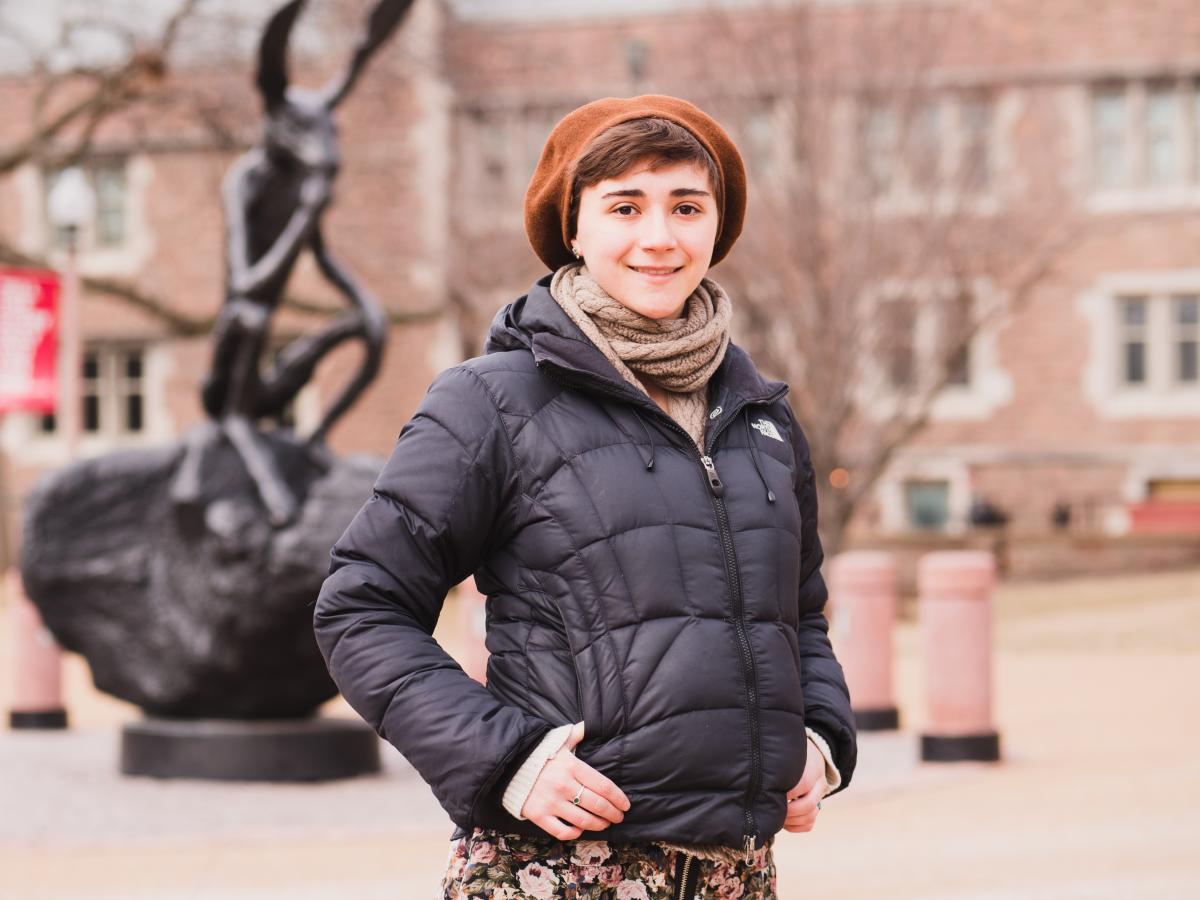
Claire Elias
Major: Earth and Planetary Sciences: Geology
Claire came into Washington University an art history major—on paper. This major reflected her strengths in high school, but by the time she created her fall semester schedule, she had relinquished it in favor of the variety of courses that came with being undecided.
Among these classes was “Environmental Biology.” During the semester, Claire discovered that she didn’t enjoy traditional biology; however, the class did confirm her passion for the environment. She shifted her focus to environmental science and enrolled in “Earth and the Environment” in the spring.
“The class was an introduction to geology,” Claire says. “I was really fascinated with the material—learning about how our planet and its incredible landscapes were formed. Geology also gives you lots of chances to be outdoors, so I thought it would be a great fit.”
Claire considered various minors, but in the end she declared only geology so that she could continue exploring a classes as freely as possible. She admits very honestly that the past three and a half years have not been easy. Math, chemistry, and physics—which are at the root of many of her classes—are challenging for her, and she puts significant time and energy into many of her classes. “I love geology, but having to work really, really hard every single day for every single thing is really tiring,” she says. “It takes a lot out of me.”
The abundance of jobs in the sciences was one of the reasons Claire chose geology, but she thinks that she will not end up working in the field. Instead, she hopes to find a job that requires skills that come more naturally to her, such as writing or more qualitative tasks. Reflecting back on her experiences, Claire emphasizes the importance of finding a balance.
“If you’re not good at something, you might work yourself to death,” she says. “I feel like you should major in what you love and what you’re good at.”
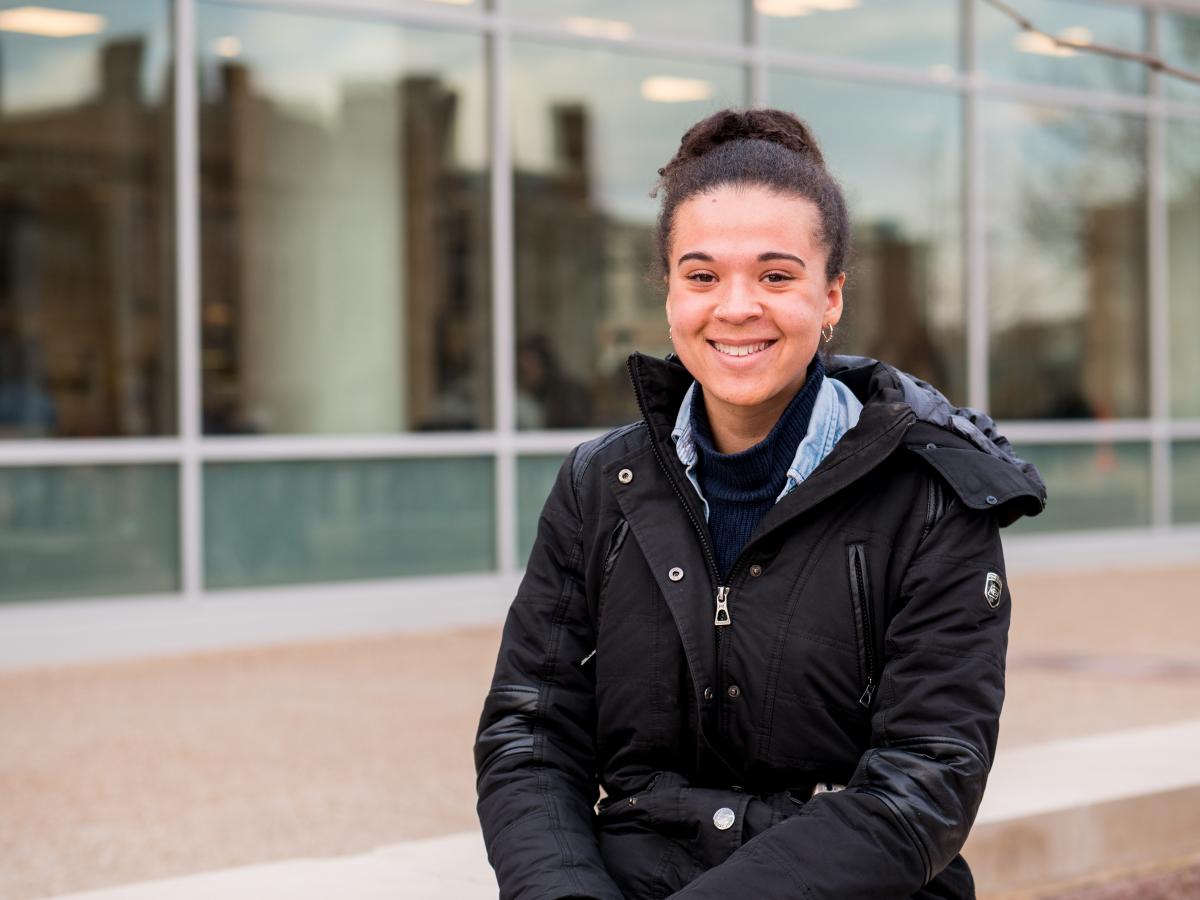
Mikayla Frye
Major: Anthropology: Global Health and the Environment
Minors: Children’s Studies, Psychology
During her SOAR summer session, Mikayla’s advisor, Dean DeVoll, asked her a simple question: “What’s a class that you really want to take?” Never having taken an anthropology class before, Mikayla picked “Introduction to Global Health.”
“By the second or third lecture, I thought, ‘Wow, this is amazing,’” Mikayla recalls.
She declared her major in global health and the environment, and finished out her freshman year completing many of the classes required for her major. Sophomore year, she decided to explore new ground. She took “Abnormal Psychology” in the spring, and just like “Global Health,” it was love at first lecture. “I knew on the first day of class that I wanted to declare a minor out of it,” she says.
Both her major and one of her minors stemmed from the classes themselves. Her children’s studies minor, however, was more premeditated. “I was trying to figure out a way to combine my interests in health and mental health and children, so I was scrolling through minors and majors in the WashU Bulletin,” she says. On the Bulletin, she stumbled upon the children’s studies minor. The description resonated with her, and she decided to take the classes to complete the minor.
“I thought it would tie in nicely with what I was interested in and what I wanted to be in the future,” Mikayla says.
For Mikayla, finding her major and minors was all about following her interests. “Take classes that you think are interesting,” she advises. “Take classes that you want to take and not just what you think you’re supposed to take.”
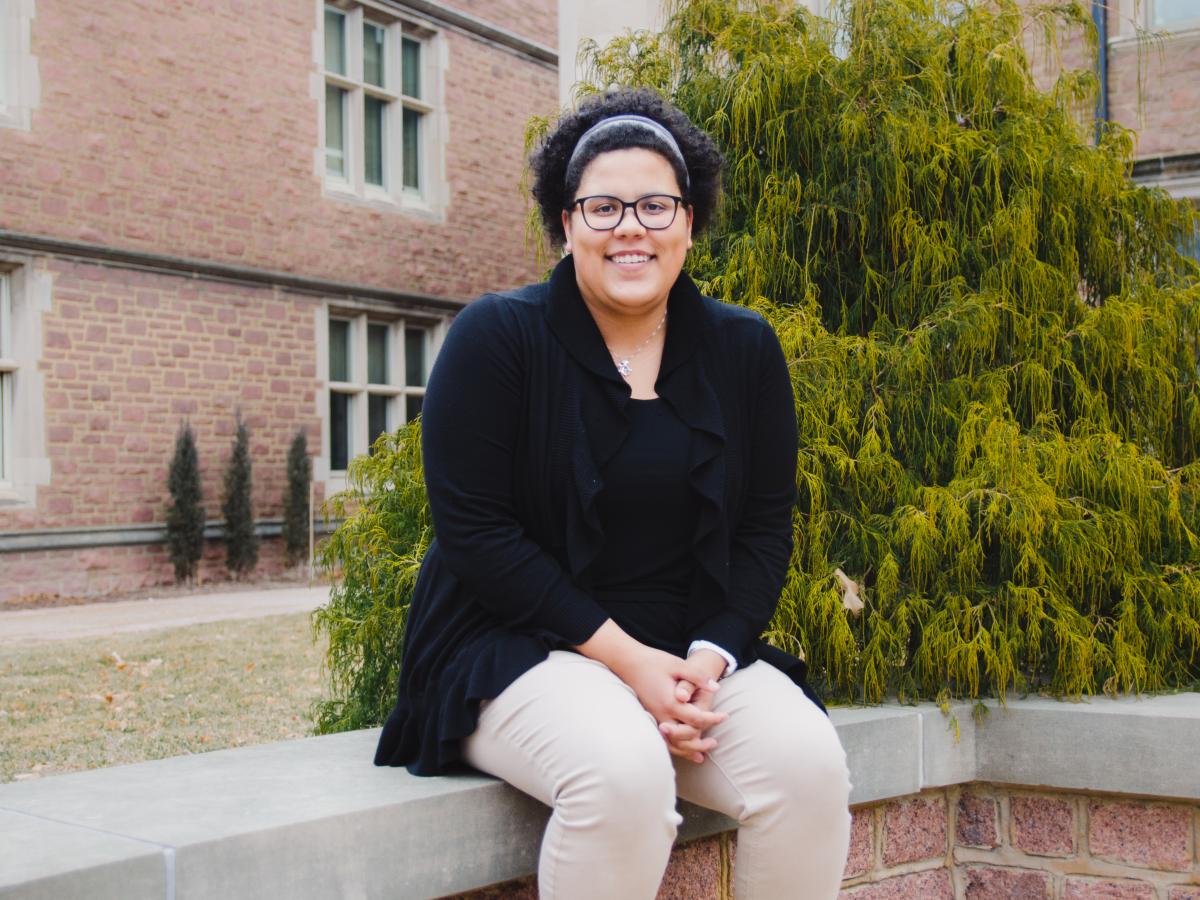
Amber Aarsvold
Major: Religious Studies
Amber’s course load from her first semester at WashU resonates with many students: “General Chemistry I,” “General Chemistry Laboratory I,” a language course, and a math class. In her second semester, she took a religious studies class on a whim. Having grown up in a religious family, and having read the New Testament several times, she thought that “Introduction to the New Testament” would be a fun, easy class. It turned out this class was not easy, but it was certainly fun.
“This was the course I actually engaged with and looked forward to,” she says. After a pause, she adds, “And I did all the readings!”
At first, Amber resisted declaring a religious studies major. While she loved the subject, she couldn’t see any practical application, so she tried courses in applied mathematics and computer science. However, after taking a semester off of school, she returned determined to pursue her passion.
“A lot of times we get really focused on our future and our careers here, on making something of ourselves,” she says. “It’s so important to step back and remember, ‘I’m 19 years old—if I want to study religion because that’s what gets my heart racing, then that’s what I’m going to do.’”
Despite her initial ambivalence about her future, Amber now has a clear plan in mind. Next year, she will be working with City Year in Baton Rouge, Louisiana. The following year, she hopes to apply to law school, and eventually end up as a public defense lawyer in St. Louis. “Religious studies is so interdisciplinary, and religion affects people’s lives in so many ways that you can find anything to get passionate about,” she says. “I’d been interested in studying law when I was young, then I moved to religion, then religion led to law.”
Her advice for choosing your major? “Don’t pigeonhole yourself too soon,” she advises. “You have to do it eventually, but take at least one course about something you haven’t really studied before but that interests you. Take at least one, and see where it leads you.”
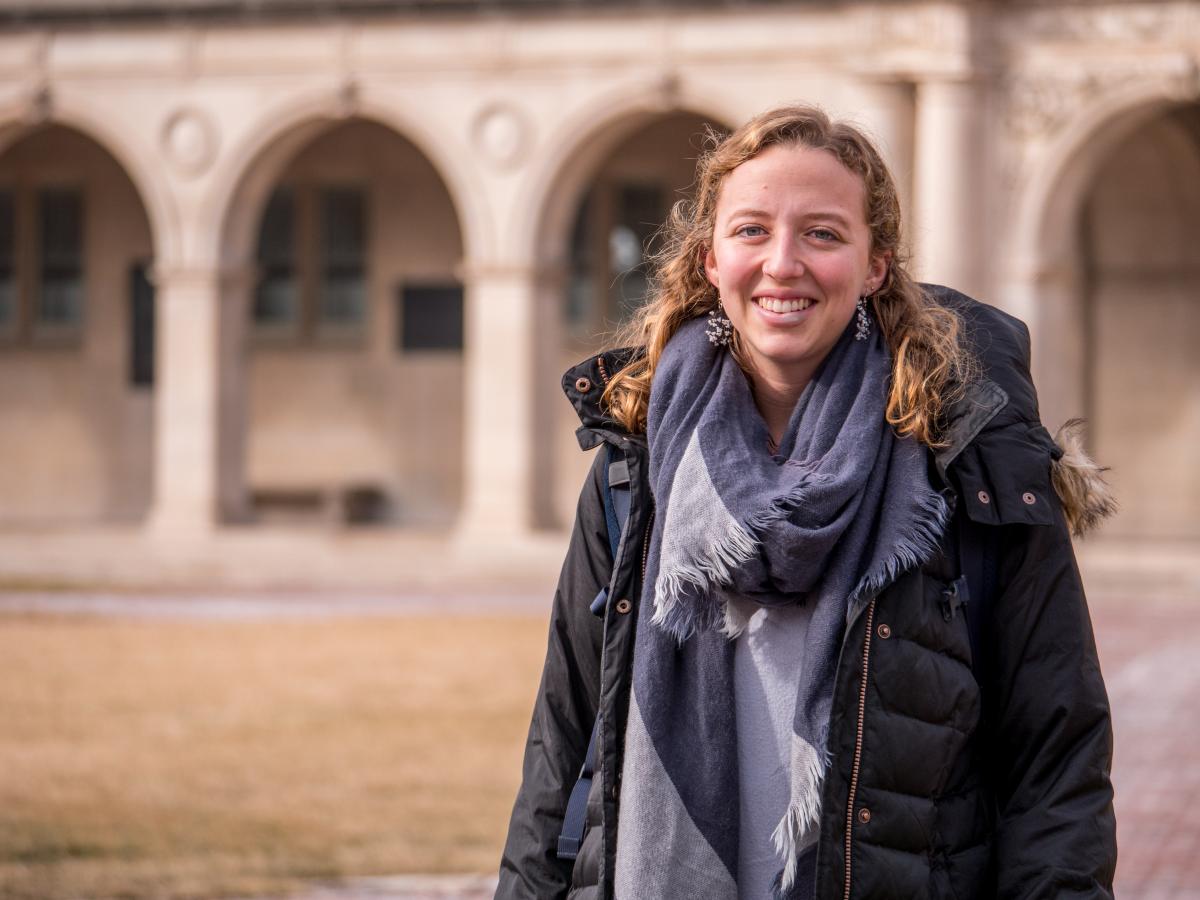
Emilia Epstein
Major: Women, Gender, and Sexuality Studies
Minors: Psychology, Architecture
Most students declare their major in the spring of their sophomore years. However, this was the semester Emilia began to think about hers.
Originally undecided about what to study in Arts & Sciences, Emilia transferred into the Sam Fox School to study architecture the summer before her freshman year. Architecture presented a clear trajectory from major to career, and it reassured her that she was following an established path. In retrospect, Emilia knew after her first semester that architecture was not for her. However, she struggled to come to terms with her intuition.
“No one ever told me that it wasn’t a waste of time to start something and then move on if you decided it wasn't for you,” she says. By the fall of her sophomore year, she had decided not to continue. It was difficult to break from the close-knit community of the architecture studio, but she ended up leaving the class near the end of the fall semester.
Now back in Arts & Sciences, her advisor granted her extra time to declare her major and explore classes. She took her first women, gender, and sexuality studies (WGSS) class that spring: “Sexuality and the State.” It was a foregone conclusion that she was going to take a class in the department at some point during her college career, but she had never thought of pursuing it as a major. After the first reading, however, it clicked.
“I didn’t know how extensive the field would even be,” she says. “The conversation could have gone on for much longer than the hour-long period that we had, and that was really exciting to me.”
Despite her late transfer, Emilia picked up her WGSS major, a psychology minor, and still completed a minor in architecture, taking two more classes in Sam Fox.
“I don’t regret the decision I made to start in architecture because I learned a different way of thinking,” she reflects. She finds architecture fascinating, she says; it just wasn’t what she was most passionate about.
Emilia’s experiences in Arts & Sciences allowed her to discover what she was truly interested in and overcome her fear of uncertainty. One of the most valuable lessons she gleaned from her journey was the value of not knowing. “Don’t decide your major until you have to, and push those limits, too,” she advises. “Even if you think you know what you’re doing, be undecided. Explore, a little bit, at least a little bit.”
Being undecided was what initially compelled her to transfer out of Arts & Sciences. But as a senior, embarking upon yet another phase of “the unknown,” Emilia feels confident that her education has prepared her for a bright future. “You can do anything with any sort of liberal arts education,” she says. “It might not open one specific door, but it definitely doesn’t close any doors, which I think is really beautiful.”
